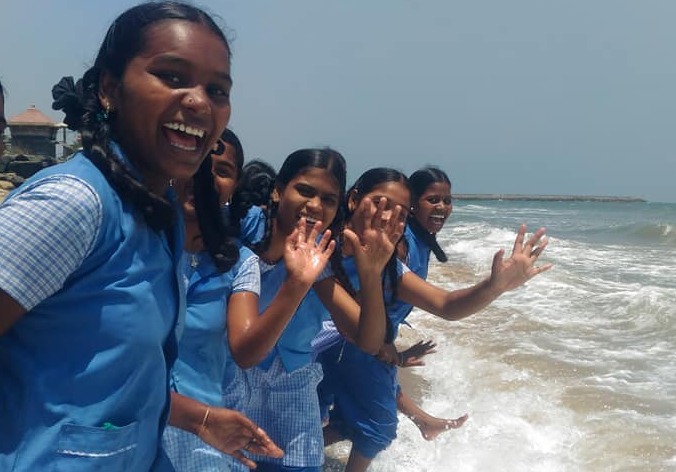
Nov 30, 2023
Empowering Minds, Sustaining Earth: The Surprising Link Between Climate Change and Educating Girls
In the intricate tapestry of global challenges, the interconnection between education, gender equality, and climate change may not seem immediately apparent. However, as we delve into the profound impact of educating girls in developing countries, a surprising and effective solution emerges—one that not only transforms individual lives but also plays a pivotal role in combating climate change.
The Power of Education: A Catalyst for Change
Education has long been heralded as a catalyst for societal progress, but its role in the fight against climate change is often overlooked. When we invest in the education of girls in low-income nations, we empower them with knowledge, skills, and confidence. This newfound empowerment doesn't just stop at the individual level; it radiates through communities, sparking a positive domino effect.
The Demographic Dividend: Educated Women, Fewer Children
One of the most remarkable aspects of girls' education is its impact on population growth. Educated women tend to make more informed decisions about family planning, resulting in smaller family sizes. This phenomenon, known as the demographic dividend, has a direct correlation with reduced carbon footprints. With fewer mouths to feed, families can allocate resources more efficiently, lessening the strain on the environment.
According to Project Drawdown:
In the poorest countries, per capita greenhouse gas emissions are low. People do not have enough energy to properly sanitize their water, read or study at night, or power their small businesses. Nevertheless, changes in fertility rates in these countries would have multiple benefits on virtually every level of global society.
Guardians of Natural Resources: Educated Women as Environmental Stewards
As educated women take on leadership roles in their communities, they often become staunch advocates for sustainable practices. With a deeper understanding of environmental issues, these women become the guardians of natural resources. They introduce and implement eco-friendly practices, contributing to the preservation of vital ecosystems. From sustainable agriculture to responsible water management, the positive impact ripples far beyond individual communities.
Sign up for our E-News
Our promise to you is to only send you relevant communications. And we won't exchange or sell your information to anyone else!
Building Resilience: Educated Women and Climate Change Adaptation
Climate change disproportionately affects vulnerable communities, and women often bear the brunt of its impact. However, educated women are better equipped to adapt to these changes.
A 2013 study found that educating girls "is the single most important social and economic factor associated with a reduction in vulnerability to natural disasters."
Through education, they gain resilience-building skills, such as financial literacy and access to information. This not only enhances their ability to weather environmental challenges but also positions them as leaders in community-driven climate adaptation efforts.
The surprising effectiveness of educating girls in developing countries as a strategy to combat climate change underscores the interconnectedness of global challenges. By investing in girls' education, we are not merely shaping individual futures; we are nurturing a force that can bring about transformative change on a planetary scale. The empowerment of women, coupled with their role as stewards of the environment and agents of change, creates a harmonious synergy that reverberates through generations. As we celebrate the strides made in education and reflect on its profound implications, let us recognize that by educating girls, we are not only fostering equality but also sowing the seeds of a more sustainable and resilient future for our planet.
Sponsor a Student's Education
Quotations are from Drawdown: The Most Comprehensive Plan Ever Proposed to Reverse Global Warming, edited by Paul Hawken, Penguin Books 2017.






